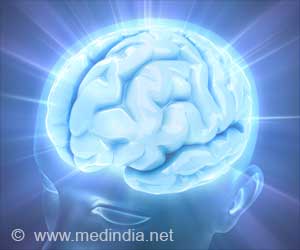Suicides can be prevented. Medindia interviewed Dr. Lakshmi Vijayakumar international resource person for suicide prevention and research and learnt how to save desperate lives.
A life is thrown away every 40 seconds somewhere in the world—by hanging oneself, slashing one’s wrists, consuming an overdose of sleeping pills or pesticides, jumping off a cliff or into a river…..the means of suicide seem endless. Suicide is the most easily preventable cause of death and it requires society’s participation to identify people with suicidal behavior, provide necessary emotional support and dissuade them from taking the extreme step.
Medindia interviewed Dr. Lakshmi Vijayakumar, MBBS, DPM, Ph.D, FRC (Psych), founder/trustee of Sneha (a suicide and crisis hotline operating from India). She was the first Asian Vice President of the International Association for Suicide Prevention, is now the national representative for Suicide Prevention, member of WHO International Network for Suicide Prevention and Research, Associate Professor at the University of Melbourne and member of the Royal College of Psychiatry (the first woman and the second Indian to have this honor).Dr. Lakshmi Vijayakumar has published dozens of scholarly papers on the subject and it is not surprising that suicide prevention organizations from around the world—from Atlanta to Beijing and even beyond, as also WHO's international network to prevent suicide, have sought Dr. Lakshmi's expert advice on aspects of suicide research.
Doctor, could you share with us some significant moments in your research and practice in the field of Psychiatry?
Braving all odds and instituting Sneha, a helpline to prevent suicides and counsel those with suicidal behavior has given me immense satisfaction. We have received over a lakh and half calls since its inception and we receive around 30 calls each day. Each call is a desperate cry for help—to be understood, to be accepted, and to be healed. The level of commitment of our volunteers at Sneha leaves my faith in human nature restored and refreshed. On the day when our Ex-Prime Minister Rajiv Gandhi was assassinated and vehicles stayed off the road fearing anti social elements, a 60-yr old Sneha volunteer cycled the entire distance from Perambur to open the doors of Sneha early in the morning. We registered a record number of calls on our helplines that day. Sneha now works round the clock.
During my tenure as Vice President of the International Network for Suicide Prevention and Research (Backed by WHO) the World Day for Suicide Prevention was instituted after intense lobbying by many of us including the then President Prof Diego Delao and the WHO Mental Health Co-coordinator, Dr. Jose Bertolote. In fact the initial set of brochures announcing World Suicide Prevention Day to the world was printed in Chennai and taken to Stockholm on September 3, 2003.
What prompted you into Psychiatry and how was Sneha, the well known suicide crisis hotline operating from India born?
The importance of mental and emotional health for a person’s overall well-being is better understood now in India than it was in the late 70s. It disturbed me that almost all studies in Psychiatry were modeled on Western criteria. For example, a prominent risk factor for suicide then, was being an elderly white male with depressive disorder. In India women either hanged themselves because their husbands scolded them or killed themselves and their small children out of sheer poverty! Reasons for suicides differ with countries and cultures. I wanted to begin a helpline that would address the problems and depressions of Indians that drove them to suicide.
After I topped the University in Medical Schooling I moved to General Medicine but within a few months of working in the General Hospital I knew my passion lay elsewhere. I researched extensively on suicides in India and after my Ph.D I scouted around the world visiting suicide prevention centers. The idea of operating a suicide prevention center with volunteers took shape after I visited the Samaritans in the UK. Back in India people tried to dissuade me from the idea on the grounds that the traditional society in India would not see depressed and despairing people stepping out to seek help. Also that we would need mental health professionals at the centre and they weren’t many of them then etc. Despite odds however, with the help of some friends and caring citizens Sneha was born in 1986. Our greatest satisfaction is that we are able to help more than 30 callers each day to choose life and not death.
Sneha is widely known for its strong volunteer base that heals and strengthens people ravaged by the struggles of life and gets them on track. How do you choose your volunteers?
I strongly believe suicide is a social problem and can be prevented with timely intervention. Though we work by involving society in suicide prevention, volunteers are inducted only if they match our strict criteria of selection. Out of every 200 that answer our call for volunteers, only 5 or 6 are selected.
Our volunteers are required to be excellent listeners, non judgmental, empathetic, balanced, thinking on their feet and unconditionally accepting any kind of person as a human being with as much right to live as any other. Availability and ability to maintain strict confidentiality are absolutely necessary in a volunteer. We get phone calls, emails and have people visiting us or bringing people for counseling. Initially Sneha helpline worked from 8 am to 10pm. Now our caring service is available 24x7, round the clock.
Is the media a help or hindrance to the cause of suicide prevention?
If the media is sensitive to the issue and reports suicides or suicide attempts responsibly it can help the cause. But if it hopes to capitalize on suicide cases through sensational reports then it causes harm and is even known to set off what is called a “Werther Effect” and prompting more suicides in the wake of a single suicide.
What disturbs you most in this line of work?
Enough is not being done at the public level and personal level to prevent suicides. The archaic law of punishing for attempted suicide under IPC 309 is defeating our purpose to help these people come out of the traumatic experience of attempting suicide and treat them for their deep psychological pain and misery. The physical, financial and social complications of police intervention hinder our work. The National Law Commission has recommended the repeal of this law and we are waiting for the government to act on the recommendation.
Also it bothers me that most people have a blasé attitude and are indifferent to reports of suicide and suicide attempts in the media unless it hits someone near and dear. In today’s fast paced world there is a growing need to be conscious of the “other.” Suicide is an impulsive act, no doubt. It also means that those interacting with the person have failed to hear a “desperate cry for help.” If all of us are cued to discerning the deep struggle and despair going on in people we interact with, we can save lives. Sometimes by simply listening to a troubled person we help the person unburden and ease the pain.
Apart from your busy Psychiatry Practice, Sneha and continuous research and lobbying at the national and international levels to help prevent suicides, is there a particular current project that you are working on in this direction?
There are many, but I am engrossed in a WHO- backed project that explores the alarming rise of suicides in rural India by pesticides. It seems to be the quick and easy way out for many, so we have started researching on a pilot project in a rural area in South India. I am continuing with my permanent pet project of conducting “psychological autopsy” to explore the many reasons for suicide.
Medindia wishes Dr. Lakshmi Vijayakumar continuing success in her pursuit of a noble cause and fervently hopes more people across the globe realize the urgency of suicide prevention and pitch in to save lives by providing emotional support to the troubled, the poor, the needy, the lonely, the sick and the desperate…..young or old, crying out silently for help.
Source-Medindia
Thilaka Ravi/L










